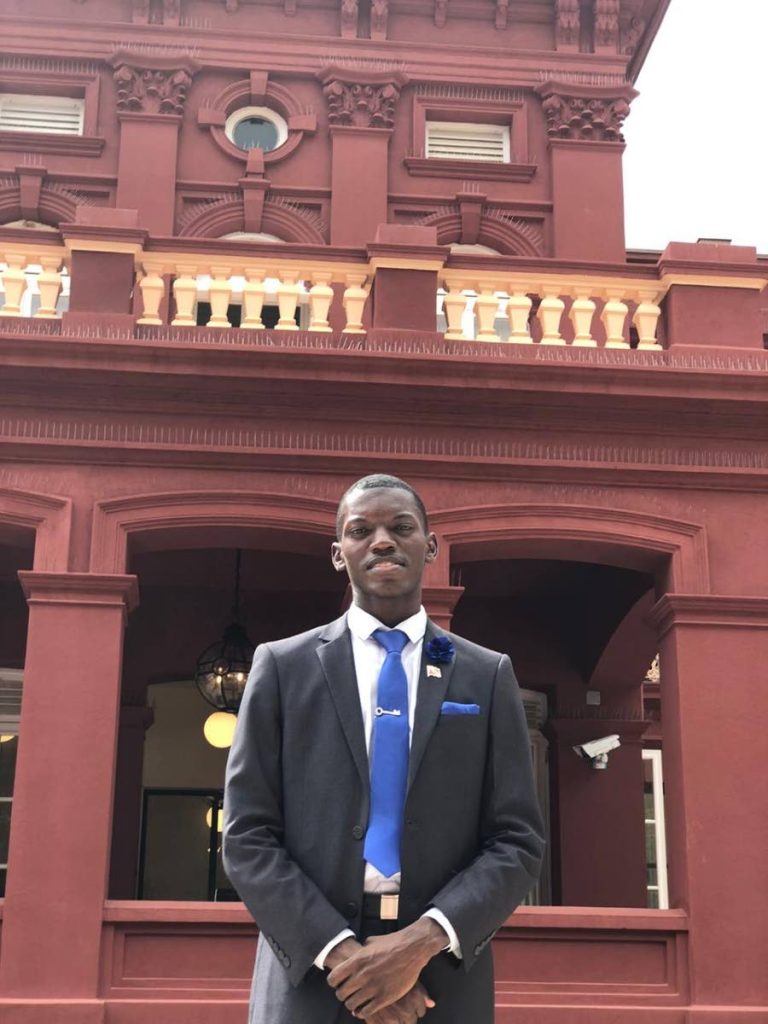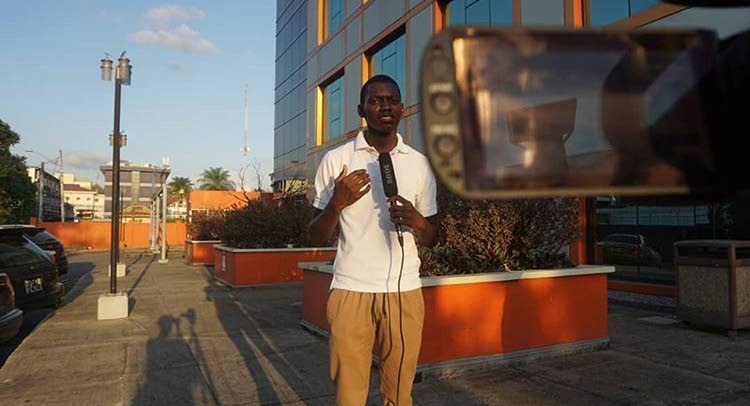Journalism student: We need real talk about race relations

The video of the death of George Floyd at the hands of police in the US in May was viewed around the globe and gave new life and international support to the Black Lives Matter movement.
The world has since witnessed widespread protests demanding change – hoping to eliminate racism.
Since the era of the anti-slavery movement, descendants of Africans and allies have been fighting for human rights and equal treatment by the economic and justice systems.
Unfortunately, many black people, and others who think race does not define an individual have been made to question their intentions and place in the world. Many are now more willing to have vulnerable and honest conversations about racism in societies.
Kemuel Pascall's family used to refer to him as "the black prince."
While this was, of course, not derogatory but said with love, it meant even his family referred to him in terms of the colour of his skin.
He then noticed himself and others being identified and treated on the basis of their appearance such as skin colour and hair texture.
“While my family's intentions were good and it meant no harm for me, after going to certain places and realising that racism is an issue – (that) made me reflect and wondered if some experiences I had with people were somewhat racist.”
Pascall, 20, from central Trinidad, a journalism student at the College of Science, Technology and Applied Arts of TT (COSTAATT), does not believe TT – perhaps like his own family – has managed to effectively sit together and discuss the issues of race and class.
"In the Caribbean people develop nicknames for people very quickly and they may call you names like ‘the black sheep.’ I must admit I was a little uncomfortable.
“These issues should be explored honestly. Negative attitudes toward each other based on differences like race should not be upheld. We need to train our children to acknowledge these things and educate them to know it is not okay – that classism and colourism should have no place in TT. I hope we will realise we are one."
He said if people can allow race, class and colour to separate them on a human-to-human level, where people lack empathy and basic care for each other – something is wrong with the society.
"I see racism as a (societal) sickness that has been ingrained and continues by being taught, beginning at childhood.
“We have to discuss it in a proper way – not the way we do it here, where it is raised on political platforms and then discussed for two or three days. We have not properly attempted to deal with or discuss it. There are very few people who try to take on the issues of race relations, but not as many as there ought to be.”
So, asked if he ever had an experience that felt like overt racism or colourism, Pascall said yes. In September 2018 he encountered a group of people, all of East Indian descent, in a public space.
“I was walking by and said, 'Good afternoon,' and no one responded. I saw them speaking all along, and as soon as I greeted them, there was silence. I felt like that may have been one of those experiences.”

He was not sure why, but he knew what he felt.
"If you saw the way they looked at me, you would understand."
He said while it may not seem like a monumental experience, it was enough to indicate a need for change.
"I went to Waterloo Secondary. There were instances where people would make fun of me because of the colour of my skin. I would be told the only things white on me are my eyes.
"I can remember the name of students who said some of these things to me. I remember telling them I knew what they were trying to say – but it did not affect me negatively."
There were also moments where he felt he was treated especially well, primarily because of his physical appearance – in places where the service provider was of African descent. Because he is involved in activities such as the Youth Parliament he is often commended for being a young black man seeking to make a positive impact on the world around him.
“People have told me they are proud of me for how I present myself as a black man who seems to be striving, so they are more inclined to help me. People spanning racial and socio-economic backgrounds would say they admire me.
"I think it is because they don’t think many black men are involved in such positive endeavours. So they’d say they are more inclined to extend greater care in providing services.”
Asked why he thinks people from other backgrounds might have this opinion, he said the positive influence of young black men on the society is not highlighted in TT as much as the negative.

"So when they see a young black man doing something positive, they think it is rare. But I think a part of it is also for encouragement, with the hope that I would seek to encourage other young black men."
Newsday asked how this might apply to young black men who do not have the access and opportunities that would allow them to make a similar first impression.
"We don't need too much to put our best foot forward. Not everyone will have the same opportunities and amount of exposure, unfortunately. But we can all look for examples of how we would want to show up in the world and start with what we have. This is where community mentorship programmes are critical."
Clothes and posture aside, Pascall said, "When you look at someone, we have the same parts; a brain, a heart, pancreas, intestines – just minor differences.
"We should, therefore, create a culture where people are given the opportunity to show their character instead of judging them based on appearances. My family is very open and welcoming to all. My grandmother’s side of the family are Indo-Trinidadian, which probably has something to do with why it (racism) is not a thing with us. When my sister got married, most of her bridesmaids were her friends who happened to be of East Indian heritage – it was just normal."
Asked if he has ever had negative feedback from people close to him for seeing all human beings as equal, Pascall said no. He thinks people may, however, disagree in silence.
"But I have never experienced anyone close to me expressing anything that goes against all men being made equal."
Asked what frustrates him most about racism/colourism in TT, Pascall said apart from racism itself, another issue has to do with people promoting separation within the same race or ethnic group.
"There are people who are mostly of African descent, for example, who consider themselves to be more special or beautiful than people with darker skin tones because they are 'red.' This is TT in 2020.
"We always say we live in a multi-racial and multi-ethnic society, but when you think about it you realise this may not be the case after all. Yes, we do live in the same space when looking at diversity within the space – but if we continue having these barriers we cannot really say we are one.”
Asked how issues related to race and class can be remedied, Pascall said, "Everyone has a part to play – from leaders to parents.
"On nomination day, the Prime Minister was called black/blank man by opposition leader Kamla Persad-Bissessar."
He said the statement had the potential of adding fuel to underlying issues of racism that are usually heightened during every general election.
"The most unfortunate thing about it is that people sit around extending these negatively-charged discussions about race issues with their children around. This continues the process of racism and classism being learned behaviours. So, to change relations in TT must begin in homes with how children are socialised to see each other.
"I was fortunate to have been raised in an open and loving family – but not everyone was raised in such a setting. However, my hope is that we will have the difficult conversations and figure out ways to coexist, to realise we are one.
"We have differences, but why continue rising up against each other? At what cost?”

Comments
"Journalism student: We need real talk about race relations"